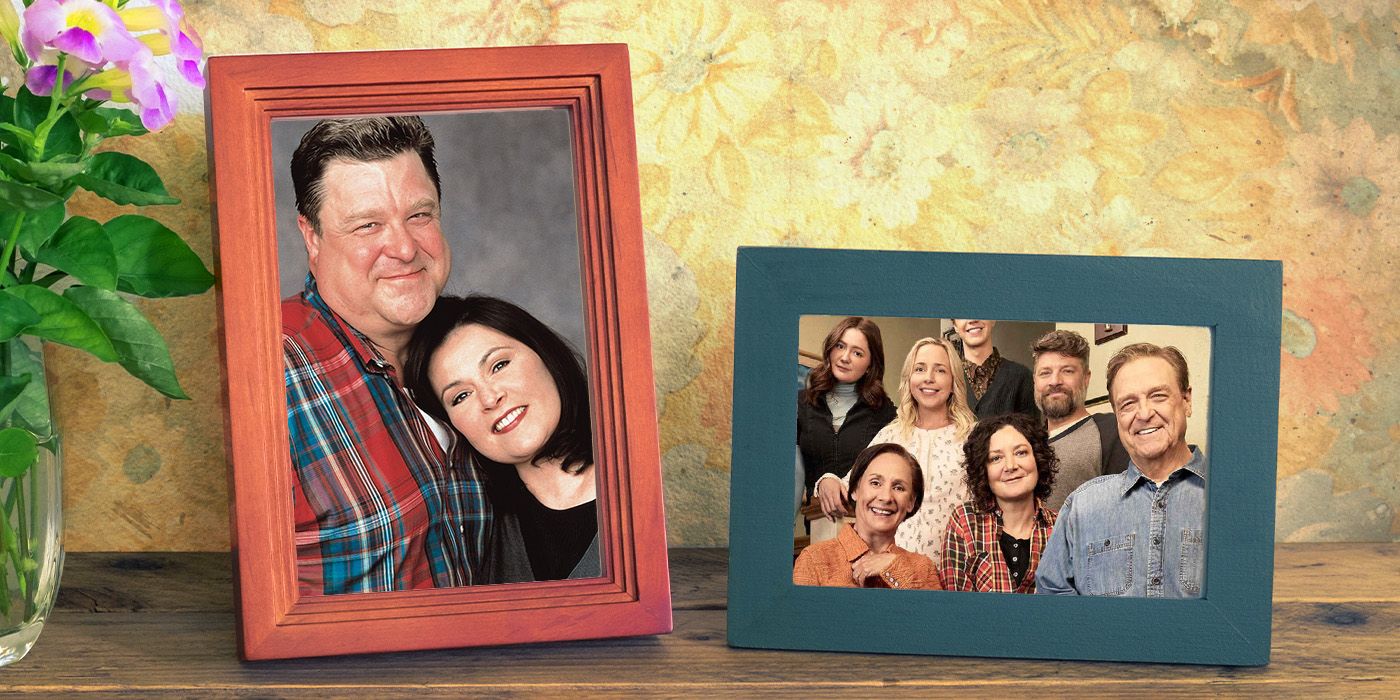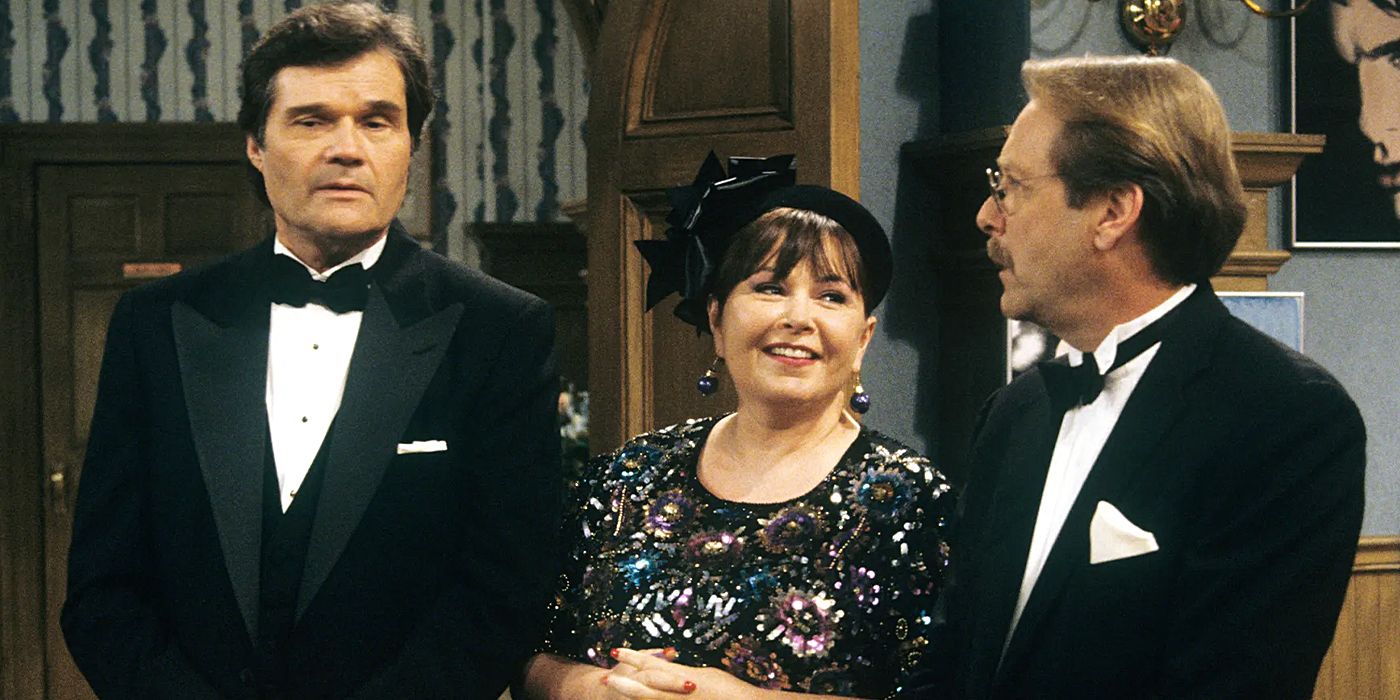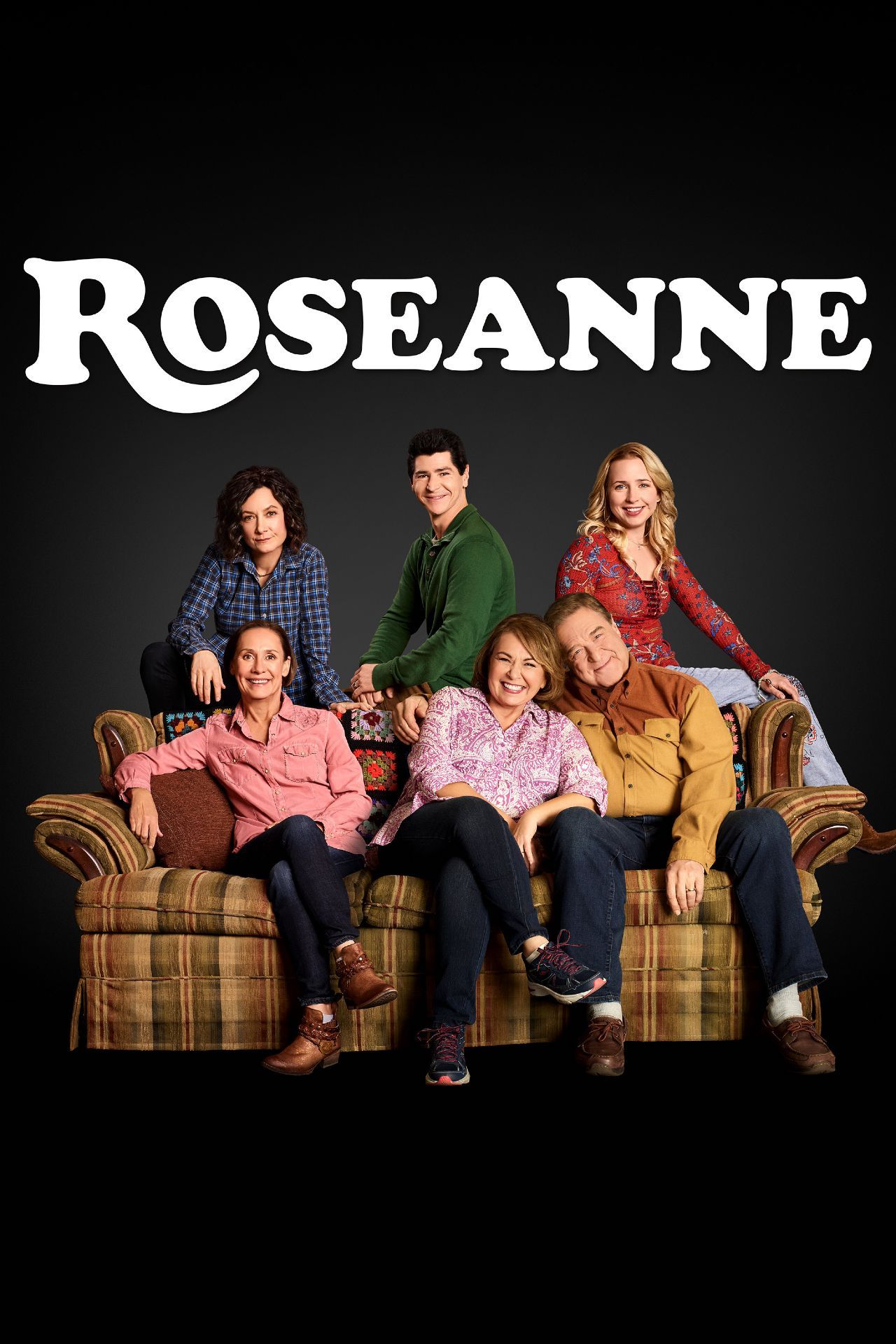30 Years Ago, ‘Roseanne’ Aired an Episode That Made ABC So Nervous They Changed the Sitcom’s Time Slot
Roseanne Barr is to controversy as Kermit the Frog is to the color green. They’re inextricably linked, as any Google search of “roseanne controversy” will tell you, with pages and pages of content speaking to controversies related to Roseanne the person and the TV series that bears her name, Roseanne. Handling topics as varied as birth control, abortion, domestic abuse, gambling addiction, and drug use, among others, is sure to rattle some cages, and Roseanne tackled them all. Not all these controversial episodes faced significant repercussions, apart from your regular letters and phone calls, but some certainly did, including two that stand as groundbreaking moments in the history of television. One, “Don’t Ask, Don’t Tell,” featured one of television’s first same-sex kisses. The second, “December Bride,” made history as the first time an American series featured the same-sex marriage of a recurring character. And it was problematic, to say the least.
‘Roseanne’ Supporting Character Leon Carp Quietly Challenged Stereotypes
Leon Carp, played by the great Martin Mull, first appeared in the Season 3 episode “Valentine’s Day,” and was introduced as Roseanne’s manager at Rodbell’s Luncheonette. The two are at odds from the start, with his obsession with pleasing customers and strict adherence to all rules and schedules at odds with Roseanne’s sloppy nature and deliberate disregard for almost everything he asks her to do. Over time, they develop a respect and friendship with one another, and Leon develops a camaraderie with Dan (John Goodman) as well, becoming a frequent participant in Dan’s poker games.
Leon is revealed to be gay in Season 3’s “Dances with Darlene,” his third appearance on the show. His homosexuality was treated, refreshingly, as just one aspect of his character. The reveal didn’t see Leon get relegated to the sidelines, but instead remain a pivotal recurring character on the series, appearing in 46 episodes in all. Leon never fell into the homosexual stereotype that befell most gay characters at the time on television. In fact, he is a moderately right-wing Republican, as evidenced by his etiquette obsession and great admiration for President George Bush, cheekily so.
‘Roseanne’s “December Bride” Made Television History
Roseanne‘s “December Bride” begins with Roseanne engaging in conversation with Scott (Fred Willard), a customer, when Leon arrives. It turns out that Scott is Leon’s ex-boyfriend, whom he left at the altar five years prior. The two plan on trying again, but have to go out to Minneapolis for pre-wedding counseling. To Leon’s chagrin, Roseanne volunteers to plan the wedding for free. She ropes Jackie (Laurie Metcalf) into helping her, and despite Leon’s wishes for a simple, modest ceremony, the two plan a big, campy extravaganza wedding with drag queens, male strippers, and large pink triangles. Leon is furious with Roseanne’s over-the-top display of offensive gay stereotypes and threatens to call off the wedding (again), but Roseanne locks him in the bathroom to keep him there.
As guests arrive (including Hollywood legend June Lockhart as Leon’s mother), Dan convinces Roseanne to be respectful and tone down the wedding. She goes in to talk to Leon about it, and hopefully calm him down. However, it’s not just about the offensive display that Leon’s upset about. He reveals that he’s anxious about marrying Scott, and tries in vain to make excuses that allow him to leave. He even claims he isn’t gay, and tries to back up his falsehood with reasons like he’s insensitive, a republican, doesn’t like shopping or Barbra Streisand.
Roseanne counters by asking him, “But do you like having sex with men? GAY!” He admits she’s right, and the wedding goes on (albeit a bit more toned down than before) and Leon and Scott exchange their vows. Dan gets bothered by the grooms kissing, for which Roseanne scolds him, saying, “It just happens to be two people of the same sex kissing, and there’s nothing wrong with that.” Just then, Sharon (Mariel Hemingway), the woman she kissed in “Don’t Ask, Don’t Tell,” taps her on the shoulder, startling Roseanne (the actress, not just the character – Barr wasn’t expecting Hemingway to be there, so her reaction is real). The episode ends with another Hollywood legend, Milton Berle, dressed in drag and catching the bouquet.
‘Roseanne’s “December Bride” Stressed Out ABC and Caused Controversy
Dan may have been bothered with the same-sex kiss between the two men, but at least he saw it. ABC wouldn’t even allow the kiss to be shown on air, and the cameras were forced to turn away at the pivotal moment (per the previously cited Decider). That wasn’t enough, though. ABC seemed to have an issue with gay marriage altogether, not just the same-sex kiss. Roseanne was moved from 8:00pm to 9:30pm, switching places with Coach for the week. ABC spokeswoman Janice Gretemeyer explained that the decision to switch the time period wasn’t because of the gay wedding, adding, “After all, the program has often had gay humor. We just felt the adult humor in this episode was more appropriate for the later time period.” She backed up the claim by saying that on a typical night, less than 10% of viewers at 9:30pm are under the age of 11.

Related
I’m Still Surprised by How ‘The Conners’ Brought Back Roseanne in Its Final Season
ABC’s ‘The Conners’ introduced the original star in a way we didn’t anticipate, and it’s still blowing our minds after the finale.
It’s hard to believe that the move was for any reason other than the network being concerned with having a same-sex marriage on the air at 8:00pm. Just five weeks later, Friends would face a similar situation with “The One With the Lesbian Wedding,” the episode featuring the first lesbian wedding on television. Like Roseanne, the cameras turned away before airing the kiss between Carol (Jane Sibbett) and Susan (Jessica Hecht). However, the two sitcoms went in very different directions following their history-making episodes. Leon continued to be a recurring character through to the end of Roseanne, but after their wedding, Carol and Susan pretty much disappear from Friends altogether. So while both are touchstone moments in the history of queer representation on television, only one, Roseanne, had the courage to keep their married couple an integral part of the series going forward.




